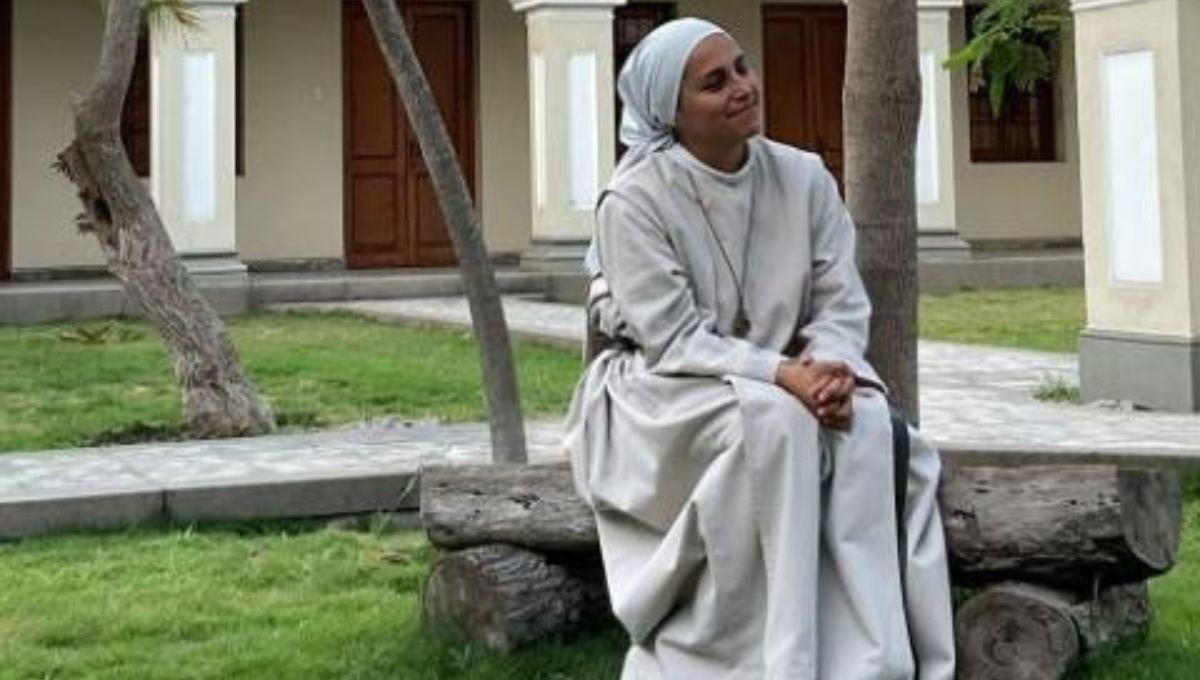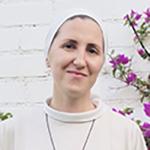
Begoña Costillo is a member of the Order of St. Augustine and lives in the Monastery of the Incarnation in Lima, Peru. She entered religious life in 2012; since then, she has lived in Spain, Italy and Peru.
I remember the many personal conflicts we all suffered during the terrible time of the COVID-19 pandemic. It was not only the fear of getting sick, of dying, of losing our loved ones, but also the boredom and anguish of not being able to do the things we normally did: work, pursue projects, have fun, be productive and so on. 
However, for a significant part of humanity, those days are over and, almost, forgotten. We returned to our jobs, our endless tasks, entertainment, fun and our exciting projects. With all the possibilities once again within our reach, we recover our own way of understanding existence, to each his own. It is possible to live with the sole pretension of fulfilling oneself, of gaining well-being or power or fame; or to live in pursuit of the comfort of a life with few surprises and, at the same time, with some emotions that embellish it.
We religious also sometimes have similar pretensions, although veiled under serious spiritual reasons. We may think that life consists of unfolding our being in what we do, because we "are" someone by the measure in which we do useful things for the community, for the church, for the poor, etc. And so, when our weekly program unexpectedly presents a vacuum that leaves us vacant, or when unwillingly a position is taken away from us or we are changed from a mission in which we felt recognized, a restlessness reappears in the depths of our soul, similar to that anguish we experienced when confinement did not allow us to work, to carry out projects, to save the world.
If I have to ask myself who I am outside of my ministry, then I have not understood what "being" means, because action, as true philosophy has been saying for centuries, follows being. That is to say, what I do is not a way of constructing what I am, but on the contrary: Only from a profound identity is it possible for fruitful works to emerge that express the essential being of the person. And only if this inner being has been given birth by the new life of the Spirit that confers on us the identity of children of God will our works be seeds of the Kingdom and not anchors on which to affirm our personality.
Then, it does not matter if I am doing the highest or the humblest work, or if I am resting, or watching a good movie, or ill and bedridden, because I am always a beloved child and with my simple existence I am a manifestation of the love of God the Father and, in this way, I shine my light on the world, I am a seed of the Kingdom. And my life therefore, has profound meaning, as our friend Miguel García Baró, a great Spanish philosopher, told us one day: "An essential advance is made when we understand that we did not come into the world to fulfill a mission other than that of having been born: that of being the miracle of an original, secret life, much more real and profound than death. This is a miracle that speaks to all of marvelous good, unspeakably greater than any pretended mission without whose fulfillment everything remains truncated, failed and meaningless."
We’re delighted to share with you this blog from the monthly feature “The Life” courtesy of our friends at Global Sisters Report. This month, The Life panelists reflected on the question: When we stop doing, we ask ourselves, 'Who are we?' When you are not working in your ministry, who are you? CLICK HERE to read more blogs from The Life series, GSR’s monthly feature about the unique, challenging, and very specific lives of women religious around the world.
PHOTO: A sister prays in the cloister of the Monastery of the Incarnation in Lima, Peru. (Courtesy of Begoña Costillo)